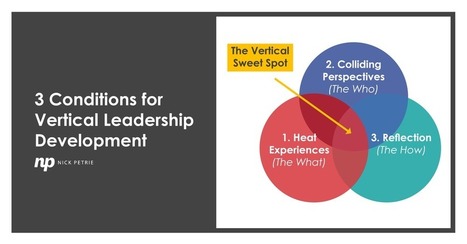Research and publish the best content.
Get Started for FREE
Sign up with Facebook Sign up with X
I don't have a Facebook or a X account
Already have an account: Login
 Your new post is loading... Your new post is loading...
 Your new post is loading... Your new post is loading...

Andrew Gerkens's curator insight,
November 29, 2020 8:09 PM
Re-scooping this under HR Capability/Role. I think it is critical that HR develop Cultural Evolution as a capability, so it can guide, support and enable the organisation to evolve. Building its own adaptive capacity is one of the biggest challenges and opportunities for HR. It is a difficult path, but one that offers significant returns, rewards and of course, growth. |
|















Many constructive developmental theorists have argued that resolution of the adaptive challenges now faced by organisations, communities and globally, requires leadership from people who
have reached Loevinger’s post-conventional stages of adult psychological development.
This paper by Nicola Caroline (Niki) Vincent explores three studies that contribute to a more sophisticated understanding of the factors that may facilitate or inhibit consciousness development (particularly to post-conventional stages). Implications for the design of, and selection of participants for, leadership programs to promote such development are discussed, and future research directions are indicated.